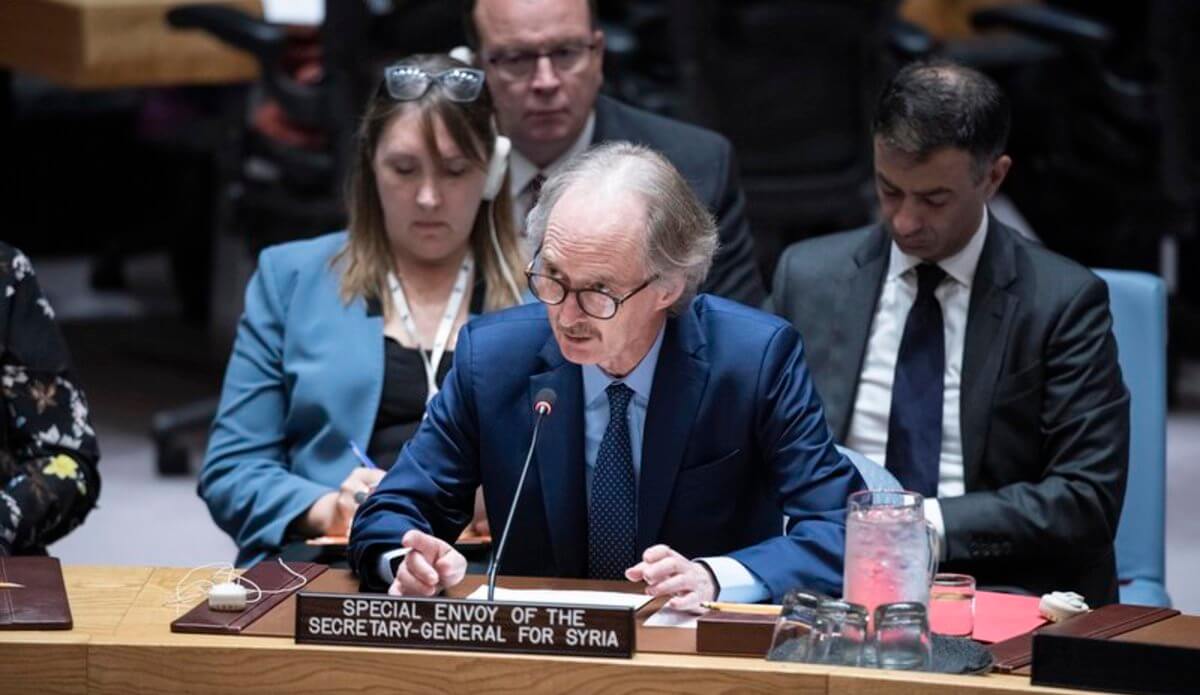On Monday, the two opposing factions in Syria convened for a United Nations (UN) led political discussion on a prospective constitution for the country in Geneva. This is the fourth such meeting of the “Small Body of the Syrian Constitutional Committee,” which includes 45 delegates, with the President Bashar Assad-led government, the opposition, and the civil society each having 15 representatives. This mechanism was set up in October 2019 with the aim to draft a constitution for the war-struck country. However, to date, there has not been much progress on the issue. Further, these UN-backed discussions have been side-lined by parallel dialogues that have been spearheaded by Russia and Turkey.
Experts on the issue do not see a quick resolution to the barrage of differences that exist between the warring groups. Geir Pedersen, the UN special envoy for Syria, said that the “mutual distrust” between the stakeholders in the region is causing significant delays in the expeditious conclusion of the issues. However, with a slightly optimistic outlook to Monday’s meet, he said, “We know that we have not lived up to the expectations of the Syrian people in making the progress that is necessary to end the suffering for the Syrian people. So, it is my hope that with the relative calm that we are seeing in Syria now, despite all the daily violations, that it should be possible to focus more heavily on the political process and all the elements of Security Council Resolution 2254.” He believed that if the two sides worked on securing the trust of the other significant progress could be made on several issues. He further reiterated the need for the international community to come together and work towards securing peace in the region.
The document is crucial as it will pave the way for a national election in the country, which has been struck by conflict for almost a decade. Resolution 2254 has called for the elections to be conducted after a constitution was drafted. The discussion could also make significant progress on the issues of abductions, internal displacements, and detentions. The establishment of the Small Body was previously lauded as a “step in the right direction” as it was indicative of a “shift at least in tone” of the Assad-led regime.
In other related developments, on Thursday, representatives of Egypt, Jordan, Saudi Arabia, and the United Arab Emirates (UAE), convened to discuss the conflict in Syria. Following the discussion, the Egyptian Foreign Ministry said that the foreign ministers of the countries discussed the need to protect the “Arabic identity of Syria.” Further, Jordan’s Foreign Ministry said that any peace-building efforts in the region had to be guided by the UN Security Council’s Resolution 2254, which was unanimously adopted in 2015 and called for a cease-fire in the region.
Warring Parties in Syria Convene for UN-Led Discussion on New Constitution
On Monday, after 10 year-long conflict, the warring parties in Syria convened for a political discussion on a new constitution.
November 30, 2020

Geir Pedersen, the UN special envoy for Syria SOURCE: UNITED NATIONS
